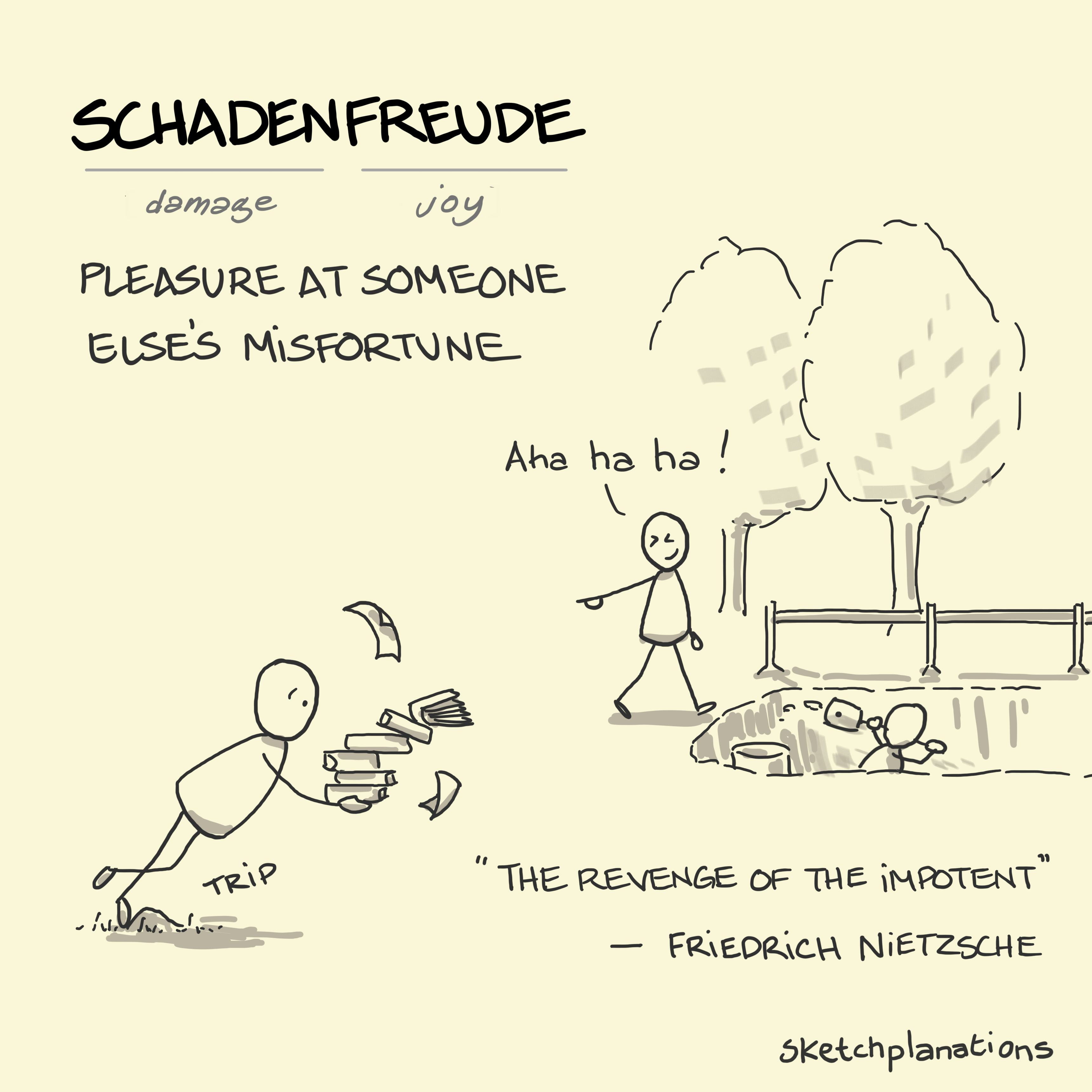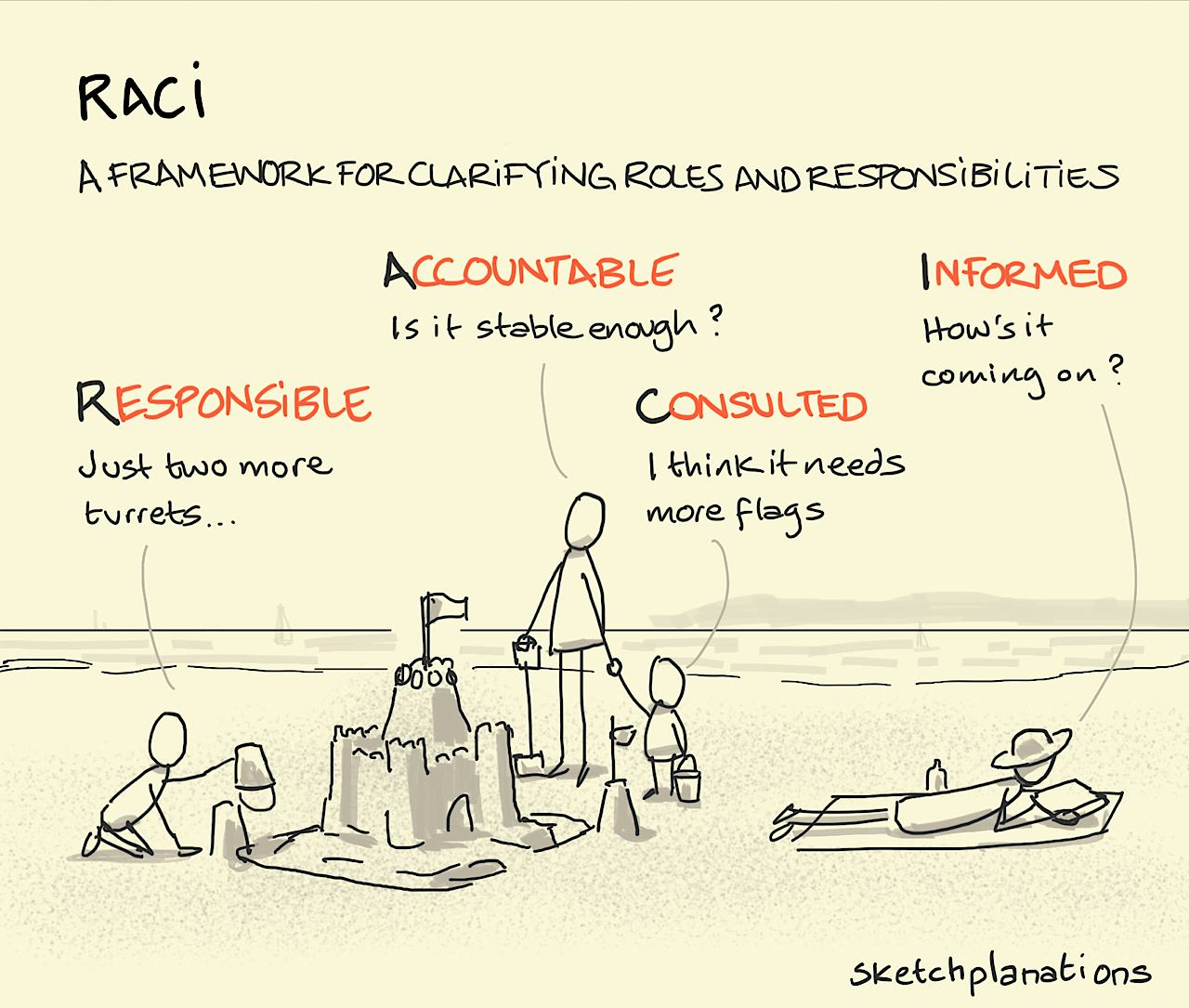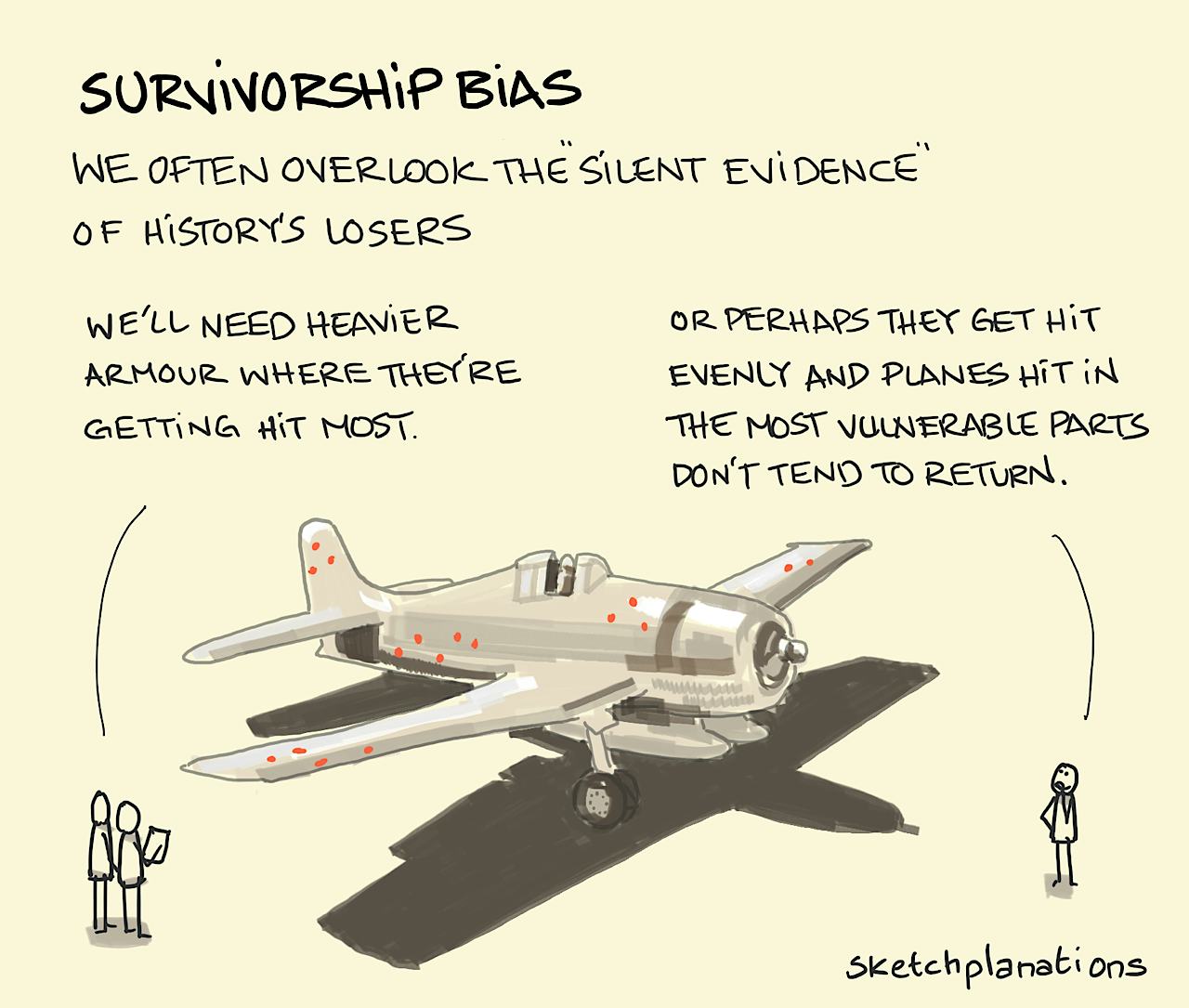Get my new weekly sketch in your inbox
Join over 30,000 people learning something new in a moment each Sunday.

Schadenfreude
Ah, that satisfying, superior, at once gleeful and slightly sinful feeling when the aggressive driver that overtook you gets his comeuppance and gets flashed by a speed camera. That feeling is Schadenfreude, a nifty German word made up of schaden for damage, harm or hurt and freude for joy. Taking pleasure in others’ misfortunes.
I hadn’t thought much of it before reading some excerpts from Tiffany Watt Smith’s book Schadenfreude. She makes the compelling case to examine the moments where we feel superior at another’s expense as a small window into ourselves. A little twinge of joy, when a colleague doesn’t get a promotion, might reveal your jealousy of their situation or a deep-down resentment of unfairness. If the person who pushed in front of you in the queue drops their ice cream straight after buying it, your secret twinge of joy might be a sense of justice and equity for obeying the rules when they didn’t. Schadenfreude can be a little boost to your own self-esteem.
For a mini-intro, try Tiffany Watt Smith’s TED Ideas article: Do you secretly feel good when others stumble? 5 ways to make peace with this very human emotion.
I revised this sketch for the book Big Ideas Little Pictures. Here's the original
You’re welcome to use and share this image and text for non-commercial purposes with attribution. Go wild!
See licence

